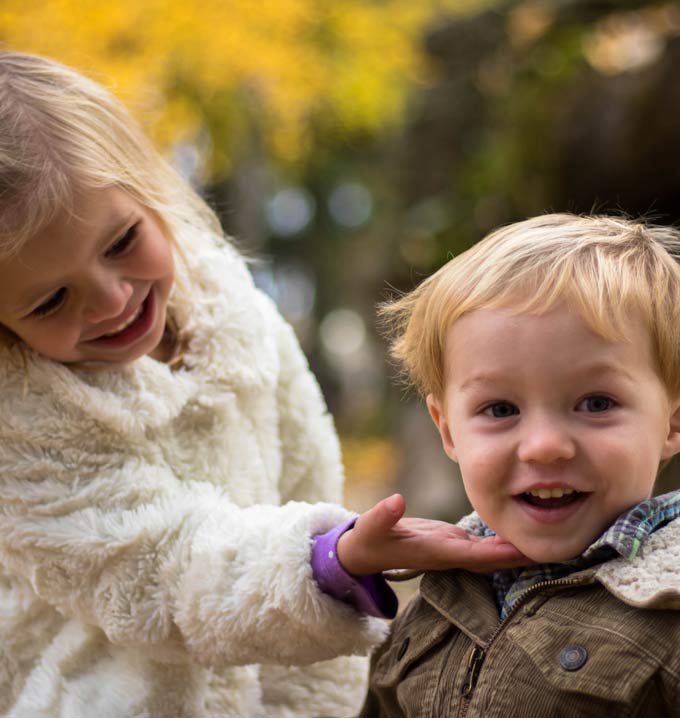First Word Milestones and What They Mean to Some Families
Understanding the stages of speech development, the impact of autism on speech development and providing appropriate support and interventions can empower autistic children to reach their full communication potential, enriching their lives and those of their families.

First Word Milestones and What They Mean to Some Families
First word milestones represent a breakthrough in overcoming communication and autism-related challenges, and signify that a child is finding their voice. They’re a testament to the hard work, dedication, and the incredible journey of growth that families and their autistic children have embarked upon.
This journey is unique and can present challenges along the way. Each milestone, especially the first words, holds deep meaning and significance for families. It represents progress and communication breakthroughs while strengthening the bond between parents and their child.
Understanding the stages of speech development, the impact of autism on speech development and providing appropriate support and interventions can empower autistic children to reach their full communication potential, enriching their lives and those of their families.
Let’s understand the different speech development stages in autistic children, why some children miss milestones, how autism affects speech and language, and what first word milestones mean to families with a autistic children.
Speech and Language Therapy for Autism
Speech and language development in autistic children can vary widely. While some may follow a similar progression to neurotypical children, others may experience delays or differences in reaching speech milestones.
Understanding the different stages of speech development can provide insight into the developmental journey of autistic children and the relationship between autism and communication. Here are the typical developmental stages in speech and language development.
1. Preverbal communication
This stage involves the use of nonverbal communication, such as eye contact, gestures, and vocalizations, to express needs and engage with others.
2. Babbling
Children begin producing repetitive syllables and sounds, laying the foundation for later speech.
3. Single words
In this stage, children use individual words to communicate their needs, desires, and thoughts.
4. Phrase and sentence formation
As language skills evolve, children start combining words into phrases and sentences to convey more complex ideas.
Understanding why autistic children may miss first word milestones
Speech development in children can be understood in terms of the development of various capacities, including expressive language (the ability to express oneself through words or gestures) and receptive language (the ability to understand and comprehend spoken language).
It involves the acquisition of vocabulary, grammar, sentence structure, and the development of speech sounds and articulation.
Despite these generalities, speech and language development remains unique for every child. Additionally, the process through which autistic children in general reach first word milestones will often differ from their neurotypical peers. So just how does autism affect communication?
Here are some factors that can contribute to autistic children missing these early language milestones.
Communication challenges
Autistic children often face difficulties in expressing themselves verbally and understanding spoken language. They may struggle with the back-and-forth nature of conversation, have limited vocabulary, or find it challenging to use words to convey their needs and emotions. These communication challenges can impede their progress in reaching the first word milestone.
Sensory sensitivities
Many autistic children experience sensory sensitivities, where they may be hypersensitive or hyposensitive to certain sensory stimuli. In terms of speech and language development, these sensitivities can affect their ability to process and imitate sounds. Sensory sensitivities to noise, for example, may make it harder for an autistic child to focus on and understand spoken words, leading to delays in acquiring their first words.
Motor skills and oral-motor coordination
Developing speech involves intricate coordination of the oral muscles to produce specific sounds. Some autistic children may experience challenges with fine motor skills, including those required for precise tongue, lip, and jaw movements. Difficulties in oral-motor coordination can also impact their ability to articulate sounds, resulting in delays or difficulties in developing their first words.
Delayed social communication skills
Autistic children often experience delays in social communication skills, such as joint attention and understanding social cues. These delays can affect their language development, including the acquisition of first words. Communication is not just about words; it also involves engaging with others, taking turns, and understanding the social context of conversations. Without these foundational skills, autistic children may experience delays in reaching their first word milestones.
Individual differences and unique developmental trajectories
It’s essential to recognize that each autistic child is unique and has their own strengths, challenges, and developmental trajectory. While some may miss the typical timeline for first word milestones, they may excel in other areas of development. It’s crucial to focus on individual progress and provide support tailored to each child’s specific needs rather than comparing them to neurotypical or allistic benchmarks.
Autistic characteristics to look out for
There’s a direct relationship between autism and language, and understanding this as a marker to assess your child’s development can be very useful. If you suspect, or are uncertain, that your child may be autistic, these are some characteristics of autism to look out for.
Delayed speech
Some autistic children may experience a delay in producing their first words or demonstrate trouble with their overall speech development.
Echolalia
Repetitive or echoed speech, where children repeat words or phrases without understanding their meaning, is common among some autistic individuals.
Difficulty with pragmatics
Pragmatic language skills, such as taking turns in conversation, understanding social cues and using appropriate gestures, may be challenging for some autistic individuals.
Verbal apraxia
Some autistic children may struggle with planning and coordinating the precise movements required for speech, leading to difficulties in articulation.
What first word milestones mean to families
For families with an autistic child, the articulation of first words is a remarkable and heartwarming milestone. It signifies progress in communication skills, an important step towards self-expression and a deeper connection with their child. These first words can bring immense joy, hope and pride to families who have tirelessly supported their child’s speech and language development.
Early intervention with Lighthouse Autism Center
Early intervention plays a vital role in supporting autistic children in their speech and language development. Speech therapy, applied behavior analysis (ABA) and other evidence-based interventions can address communication challenges, promote language acquisition and enhance social communication skills.
Lighthouse Autism Center (LAC) has a plethora of autism resources to complement their innovative Lighthouse Fusion ABA Therapy to help you with early detection and intervention.
Together, we can unlock your child’s potential
Related News

01/15/2026
10 Simple Self-Care Habits for Autism Caregivers
Caring for a child with autism is rewarding, but can also be demanding in ways that aren’t always visible. Between daily routines, therapy schedules, advocacy, and emotional labor, many caregivers find themselves running on empty, even as they continue to show up for their child every day. Earlier this year, we explored this reality in our blog post, The Power of Pause: Why Caregiver Self-Care […]

01/05/2026
The Power of Pause: Why Caregiver Self-Care Matters
As a new year begins, many families naturally reflect on what they hope the months ahead will bring—more peace, more balance, more support. At Lighthouse Autism Center, we’ll be taking a deeper look at the importance of self-care throughout the month of January, offering resources and encouragement to help caregivers start the year feeling supported and grounded. But […]

11/18/2025
Tips for Picky Eaters and Introducing New Foods
Autistic children are often labeled as picky eaters, but the truth is that they face a unique set of challenges that can make mealtimes extremely stressful. Discover helpful tips on introducing new foods into your child’s diet to make mealtimes more nutritional and enjoyable for everyone at the table. Autism and Food: Tips for Introducing […]


